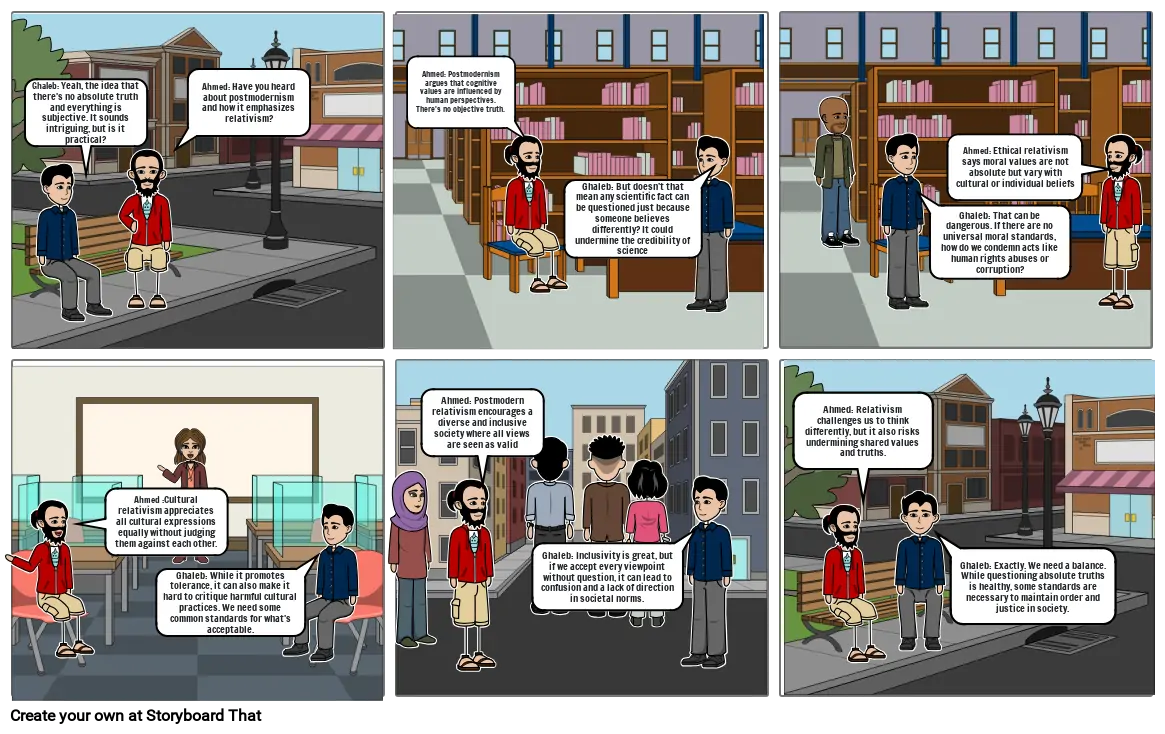Secularism

Storyboard Text
- Slide: 1
- Ahmed: Have you heard about postmodernism and how it emphasizes relativism?
- Ghaleb: Yeah, the idea that there's no absolute truth and everything is subjective. It sounds intriguing, but is it practical?
- Slide: 2
- Ahmed: Postmodernism argues that cognitive values are influenced by human perspectives. There's no objective truth.
- Ghaleb: But doesn’t that mean any scientific fact can be questioned just because someone believes differently? It could undermine the credibility of science
- Slide: 3
- Ghaleb: That can be dangerous. If there are no universal moral standards, how do we condemn acts like human rights abuses or corruption?
- Slide: 4
- Ahmed :Cultural relativism appreciates all cultural expressions equally without judging them against each other.
- Ghaleb: While it promotes tolerance, it can also make it hard to critique harmful cultural practices. We need some common standards for what's acceptable.
- Slide: 5
- Ahmed: Postmodern relativism encourages a diverse and inclusive society where all views are seen as valid
- Ghaleb: Inclusivity is great, but if we accept every viewpoint without question, it can lead to confusion and a lack of direction in societal norms.
- Slide: 6
- Ahmed: Relativism challenges us to think differently, but it also risks undermining shared values and truths.
- Ghaleb: Exactly. We need a balance. While questioning absolute truths is healthy, some standards are necessary to maintain order and justice in society.
- Slide: 0
- Ahmed: Ethical relativism says moral values are not absolute but vary with cultural or individual beliefs
Over 30 Million Storyboards Created
No Downloads, No Credit Card, and No Login Needed to Try!
